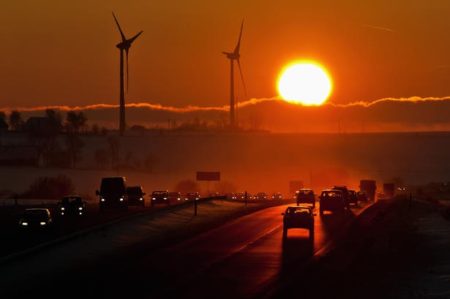January 17, 2020 – In today’s Financial Times, the Editorial Board of the paper has written an opinion piece entitled, “The Energy Transition Will Not Come Cheaply.” It describes how governments are struggling to balance economic demands and policy action to mitigate climate change and notes that “events of the past 18 months, including a marked shift in public awareness of the climate emergency, have underlined the need for action.” The problem remains a global dependence on burning carbon-based energy to keep the lights on, people employed, shelters warm or cool, and food on the table.
How do you restructure society to shift to a non-carbon energy future?
Does any government in existence today have the answers?
The editorial argues that it is time “to get serious about the transition to a low-carbon economy.”
We know the why, but do we know the how?
The why has been answered in the latest data and reports from Copernicus, NOAA, and NASA, with reports that the land and oceans of our world are heating up at an accelerating rate.
The problem is that governments are trying to nuance the how with minimal impact on the existing economic and social model. Most are failing to get the transition underway as can be attested by the fact that carbon emissions continue to rise annually.
The leadership of the European Union (EU) has worked out the cost of the shift but not yet the intricacies of how to engage the public in achieving the transition.
How do you educate and inform citizens about what choices lie ahead?
So what is the EU cost?
Europe’s Green New Deal to be the first carbon-neutral area of the planet by mid-century has an initial ten-year price tag of one trillion Euros. How will it be divvied up? Half will come from the collective budget of the EU, a quarter from a new fund run by the European Investment Bank, and 100 billion Euros from national budgets. To help Eastern European countries, formerly a part of the Soviet Bloc, less will be asked of their national governments.
The EU sees the one trillion Euros as a down payment with 260 billion needed in new investment annually to achieve the current 40% carbon emission reduction target for 2030. A more ambitious target of between 50 and 55% may require a larger annual investment.
All EU governments are legally bound to achieve these targets. But the instruments of oversight have yet to be put in place including provision for both sticks and carrots to keep all EU members on the path to achieve the overall reduction goal.
The Balancing Act that Must Follow
There is no doubt there will be winners and losers throughout the EU as the transition works its way through all nations, a “tectonic shift” in the way European society is structured according to Frans Timmermans, Europe’s senior commissioner in charge of climate action.
Some industries will lose hundreds of thousands of jobs, while new industries will emerge to provide sources of employment.
Some EU countries will face much greater social challenges than others. One thing for sure, however, is that political leaders will have to come clean with citizens. Policymakers will have to be creative and sensitive to the disruptions a low-carbon economy will produce to help the public adapt to a new way of living. This will require a massive effort in information sharing and education.
If anyone is up for the challenge it is Europe, which has taken a global leadership role in fighting climate change.
Will the rest of the nations of the world follow?
The Financial Times article concludes that “it is not just the EU’s credibility that is on the line,” it’s the entire planet and our global and collective way of life.
















